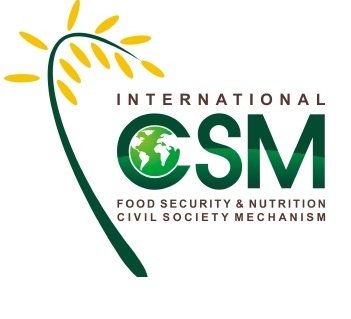 The Committee for World Food Security (CFS) is the United Nations’ forum for reviewing and following up on policies concerning world food security. It also examines issues which affect the world food situation. It was established as a result of the food crisis of the 1970s, upon recommendation from the 1974 World Food Conference. The reformed Committee on World Food Security (CFS), as adopted in its 35th session in October 2009, is an intergovernmental body working with multi stakeholders towards the “elimination of hunger and ensuring food security and nutrition for all human beings”.
The Committee for World Food Security (CFS) is the United Nations’ forum for reviewing and following up on policies concerning world food security. It also examines issues which affect the world food situation. It was established as a result of the food crisis of the 1970s, upon recommendation from the 1974 World Food Conference. The reformed Committee on World Food Security (CFS), as adopted in its 35th session in October 2009, is an intergovernmental body working with multi stakeholders towards the “elimination of hunger and ensuring food security and nutrition for all human beings”.
The CFS reforms are designed to focus the Committee’s vision and role on the global coordination of efforts to eliminate hunger and ensure food security for all. This includes supporting national anti-hunger plans and initiatives; ensuring that all relevant voices are heard in the policy debate on food and agriculture; strengthening linkages at regional, national and local levels; and basing decisions on scientific evidence and state of the art knowledge.
For the first time in history, civil society played a fundamental role in the shaping and design of the reform proposal. It is with this victory, that civil society must continue to have a prominent place in influencing and ensuring that the CFS will be accountable for following through on it’s promises.
> What is the CSM Mechanism?
During the Civil Society Consultation, 8-10 October 2010, the proposal for the Civil Society Mechanism (CSM) was presented for discussion and endorsement.
The essential role of the Civil Society Mechanism (CSM) is to facilitate the participation of CSOs in the work of the CFS, including input to negotiation and decision-making. The CSM will also provide a space for dialogue between a wide range of civil society actors where different positions can be expressed and debated.
